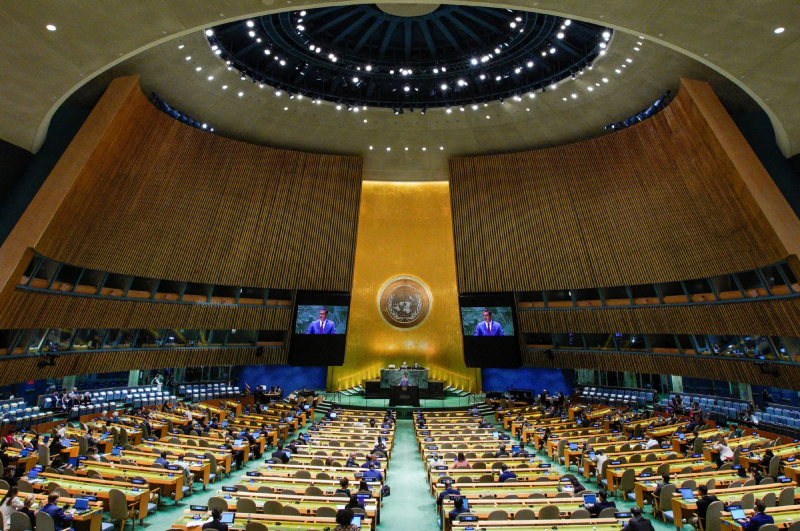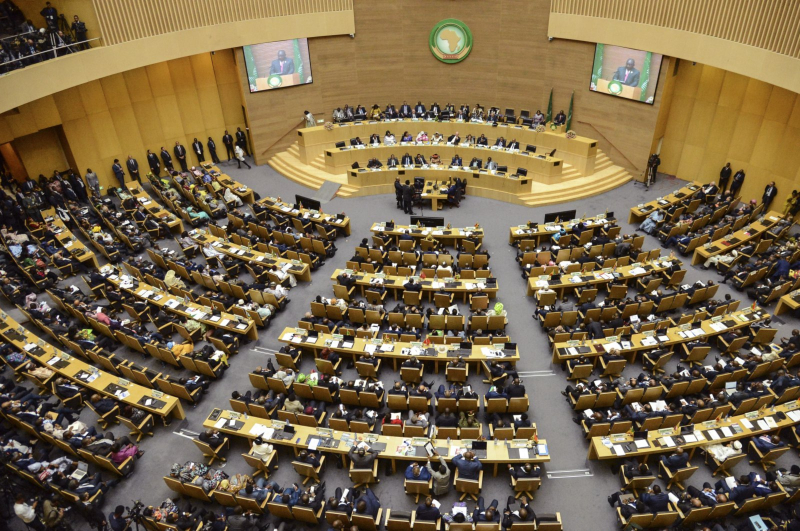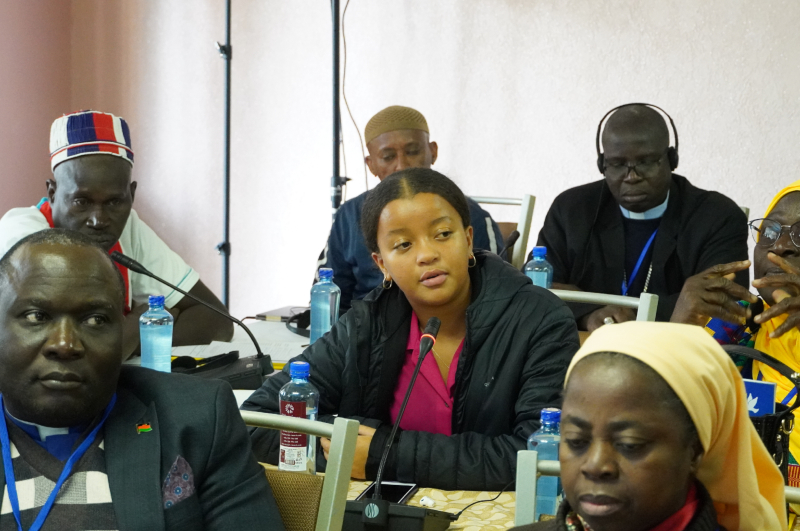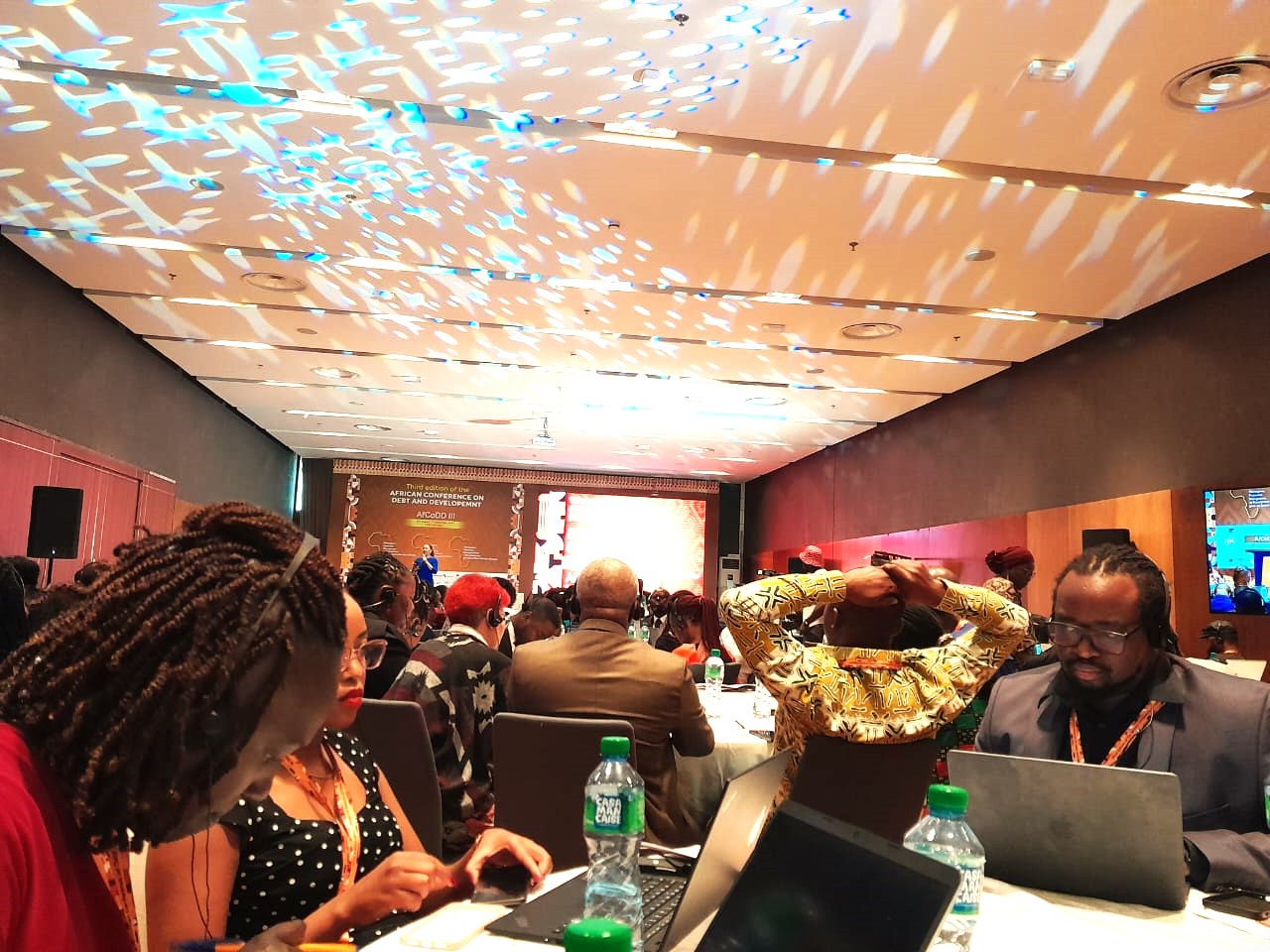



JENA’s Advocacy at UNGA 78 for Health, and Education Equity in Africa.
The Jesuit Justice and Ecology Network - Africa (JENA) and partners actively participated in the 78th session of the United Nations General Assembly (UNGA) in New York, which commenced on 12th September 2023. Our engagements and dialogues were pivotal, emphasizing the urgent needs and developmental goals of Africa in health, education, and holistic human development.
United for a Common Goal
The assembly, themed ‘Rebuilding Trust and Reigniting Global Solidarity: Accelerating Action on the 2030 Agenda and its Sustainable Development Goals’, resonated with our mission to fortify efforts towards achieving peace, prosperity, progress, and sustainability for all.
Striving for Health Equity: A Deep Dive into Global Health Concerns
In our participation in discussions and dialogues at UNGA 78, JENA, along with its partners, delved deeply into the myriad of health-related challenges plaguing the world, especially those relevant to low- and middle-income countries. Our focus was primarily on the pressing issues outlined in the Zero draft of the political declaration on Universal Health Coverage (UHC).
Noncommunicable Diseases (NCDs) – A Growing Concern
Noncommunicable diseases, encompassing conditions like heart disease, stroke, cancer, diabetes, and chronic lung disease, remain a substantial global concern. These ailments are responsible for a staggering 74 percent of all deaths worldwide, with a significant majority, 86 percent, of premature deaths—those occurring before reaching 70 years of age—occurring in low- and middle-income countries. (Source: WHO Technical Brief on NCDs).
Unmet Health Needs – A Catalyst for Increased Morbidity and Mortality
Our expressions of concern were paramount about the unmet health needs, especially among households unable to afford the cost of health services, as this can lead to increased morbidity and mortality due to lack of or delayed access to health services (Source: Based on WHO EB152 (5) PP15).
Communicable Diseases – Varied Progress and Persistent Challenges
The progress on communicable diseases in 2021 varied significantly, exemplified by an estimated 1.5 million new HIV infections and approximately 1.6 million deaths from TB, accompanied by a rise in the TB incidence rate by 3.6 percent between 2020 and 2021. The scourge of malaria continued unabated, with 247 million cases reported globally.
Furthermore, treatment and care remain pivotal for 1.65 billion people still afflicted by neglected tropical diseases. (Source: Based on SG’s Progress Report on SDGs, advanced version).
Maternal Mortality and Child Deaths – A Grave Reality
The stark reality remains that almost 800 women continue to die every day from preventable causes related to pregnancy and childbirth, with almost 95 percent of these deaths occurring in low and lower-middle-income countries. Additionally, a heart-wrenching five million children did not live to see their fifth birthday in 2021. (Source: Based on SG’s Progress Report on SDGs, advanced version).
Mental Health – A Silent Epidemic
The spectrum of health challenges also includes mental health disorders, with nearly 1 billion people living with a mental health disorder. Individuals with severe mental health conditions face a drastically reduced life expectancy, dying on average 10 to 20 years earlier than the general population. The grim reality of mental health is further underlined by the approximately 703,000 deaths annually due to suicide. (Source: WHO Technical Brief on Mental Health).
The amalgamation of these health challenges elucidates the extensive and multifaceted health crisis the world, particularly Africa, is currently navigating. Our continuous advocacy at platforms like UNGA aims to bring to light these pressing issues and facilitate collaborative global efforts and policies to mitigate these challenges and uphold human dignity and life.
Our deliberations placed emphasis on the persistent educational disparities, especially those disadvantaging girls in Africa. While there has been a 44% global reduction in out-of-school girls of primary school age from 2000 to 2018, substantial numbers, primarily from sub-Saharan Africa, remain out of the educational realm as of 2018.
Understanding Disparities: A Complex Landscape
Our discussions revealed that gender disparity in enrolment is more prevalent at the secondary level compared to the primary. The patterns of disadvantage are multifaceted, with boys also experiencing disparities in many countries, albeit typically less extreme. The largest and most alarming gaps disadvantaging girls are prevalent in sub-Saharan Africa, where, in countries like the Central African Republic and Chad, only 61 and 62 girls respectively are enrolled in lower secondary schools for every 100 boys.
Addressing Disparities: A Global Perspective
The proportion of out-of-school children at the lower secondary school age was 49 percent girls globally in 2018, showing a slight improvement from 54 percent in 2000. While less than 10 percent of adolescents are out of school in regions like North America, Europe, and Latin America, sub-Saharan Africa continues to struggle with staggering rates of 36 percent and 39 percent for boys and girls, respectively. Countries like Mali and Sierra Leone depict grim pictures where nearly half of the girls and boys are out of lower secondary schools.
Implications and Risks of Educational Marginalization
Out-of-school adolescents, irrespective of gender, face significant social and economic marginalization, with girls being at a greater risk of early and forced marriages and associated health risks including adolescent childbearing. The multifaceted implications of being out of school are not just a loss of individual potential but also a significant impediment to societal progress and development.
Advocacy for Equal Educational Opportunities
JENA and its partners, in recognizing these critical issues, emphasized the urgency for robust policies, investments, and interventions aimed at promoting gender equality in secondary education. We advocate for a global commitment to address these disparities and ensure that every adolescent, regardless of gender, has access to quality education, thus fostering a generation of empowered and engaged citizens capable of contributing significantly to sustainable development.
Prioritizing Gender Parity
We underscored the glaring gender disparities in lower secondary education, particularly in West and Central Africa. Our dialogues also reflected on the wide gender gaps in youth literacy in regions like sub-Saharan Africa. In specific contexts like Chad, the Gender Parity Index (GPI) is a mere 0.55, reflecting the stark disparities in literacy levels between young males and females.
Advocacy and Action: A Reflection
Our active involvement in UNGA 78 enabled us to spotlight critical issues, advocate for transformative changes, and call for unified, decisive actions to accelerate progress on the Sustainable Development Goals, ensuring peace, prosperity, progress, and sustainability for Africa and the global community.
A Unified Call to Action
JENA, along with its partners, calls for continuous effort and enhanced collaboration among nations, development partners, and various stakeholders. Together, we can advance health and education, mitigate gender disparities, and enhance human development, steering the world toward justice, equity, and sustainability.
Related Articles



Select Payment Method
Pay by bank transfer
If you wish to make a donation by direct bank transfer please contact Fr Paul Hamill SJ treasurer@jesuits.africa. Fr Paul will get in touch with you about the best method of transfer for you and share account details with you. Donations can be one-off gifts or of any frequency; for example, you might wish to become a regular monthly donor of small amounts; that sort of reliable income can allow for very welcome forward planning in the development of the Society’s works in Africa and Madagascar.
Often it is easier to send a donation to an office within your own country and Fr Paul can advise on how that might be done. In some countries this kind of giving can also be recognised for tax relief and the necessary receipts will be issued.


